Peter Graham, top martial arts school owner, Bellator Champion and Multiple World Title Holder, shares how to apply the fighter’s winning mindset to daily life.
- How to stay motivated in a period of downturn
- How to make decisions under uncertainty
- Helpful tips for successful goal setting
- How to think and perform like a ‘true’ martial arts fighter
- And more
*Need help growing your martial arts school? Learn More Here.
TRANSCRIPTION
We're scared, we're worried. It's not just for ourselves, you know, we have families and the people we work with and train with, you know, we know them really well. But now is the time for us to dig deep and say, “I have this feeling – it's okay. But what can I do to fight another day?” And that's a real martial artist’s or a fighter's attitude.
GEORGE: Hey this is George Fourie and welcome to another Martial Arts Media business podcast. So I'm joined today with a special guest, Peter Graham. And Peter Graham, we were having a chat the other day, so just recently, we just started working together in our Partners group and we’ve been having a few calls and we had a few chats about…
Obviously right now, depending on when you’re listening to this, but the current pandemic and the situation. And we were having real interesting conversations about us being martial artists. Now. Peter's experience or credentials go two miles further than mine do, but the real conversation got going about the martial arts mindset.
Now, Peter is a real successful martial arts school owner and I'm going to get in to share a bit of his credentials right now because I couldn't keep track of all of them. And we're going to chat about just dealing with the now, how our martial arts mindset could benefit us in this current situation and wherever this conversation goes. So welcome to the call, Peter.
PETER: Thanks George. Hey, you know, this is where they say who I am. I am a martial artist, so I come from a karate background, kyokushin background. I was an uchi-deshi, so I lived in Japan doing karate. And that moved on from one thing to another, to another.
Basically the whole budo experience. You know, I just wanted to fight all the time and the best people I could fight. So not unlike a lot of karate or taekwondo guys and girls, you know, they always go to lots and lots of tournaments and, you know, if you keep winning, I guess you try to find ones that are even more up the pay scale so to speak.
So I also have a black belt in kenpo karate, BJJ experience for ten years or eleven. Last couple of years I haven't really been focused on it. I was pro MMA, so I made it to the finals of the Bellator. Lost to Cheick Kongo in the finals, but that's okay. He's a good guy, yeah, I can deal with losing to him.
Made the K1 Grand Prix, which is top-paid. Oceania champion. Six kickboxing world titles, Thai boxing world title, boxing world title. But really, that was just part of being a martial artist, part of me trying to be the best I could be. And it was the whole, I guess a word that people use all the time at the moment is mindset.
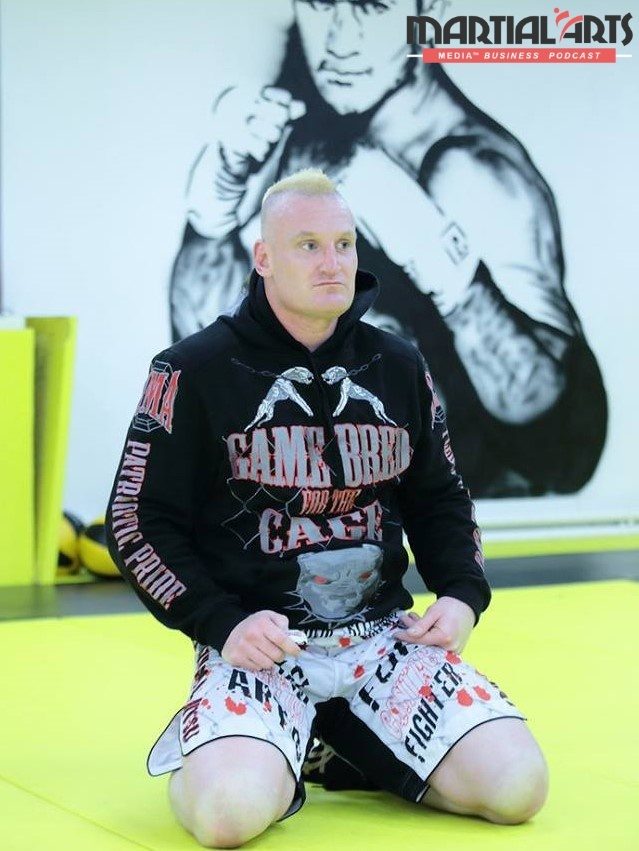 So along my path to where I thought I wanted to go, or where I thought I needed to be, there were blocks depending on, you know, which, you know, which country rose in or what was happening in the political climate. The economic downturn in 2008, you know, really killed K1.
So along my path to where I thought I wanted to go, or where I thought I needed to be, there were blocks depending on, you know, which, you know, which country rose in or what was happening in the political climate. The economic downturn in 2008, you know, really killed K1.
And, you know, there's always something. But instead of throwing my hands up in the air and saying, ah – always look for something else to do. As a fighter, there's different organizations in different countries so I just always kept on looking for that next opportunity.
And I guess that really brings us to where we are now. I mean, with the current situation, you know, all schools are closed down and, you know, I see a lot of people really panicking and stressed out and I understand that, you know, the complete lack of finances is stressful.
But in this time, you know, it will really show the people who take the mindset of a martial artist. Anyone who has a black belt, whether it took them two years or twenty years to get it, has that ability to see into the future knowing that the hard work they put in now can repay later on.
The success of earning a black belt is a huge thing for a lot of people and of course young martial artists, you know, some of them, it's more than half their life as a young child. And sometimes people who have been a black belt for so long or been a champ for so long, or been successful so long, you know, we get a bit soft.
We’re used to the good paychecks, we’re used to the high-fives and the successful meetings and the, you know, all the good things and tracking that come along with that. And then we forgot how difficult it was when we first started, you know, we got some really, really great… It's my five-year-old, showing me her cut out of a car.
Now, we've got some really, really great athletes and my gym. And I tell them, I say, hey guys: you see that that new person down there, the chubby guy down there who's turning purple in the face and his lips have gone all white and he's just about to roll his eyes? I said, he's the one who's working the hardest today. Don't forget that.
You've got to outwork him every time if you want to get to be… If you want to be the champ. And at the moment, I think that is a massive point for successful people at the moment, you know, specifically in our line of martial arts and combat sports is that we have to say, “hey what was it like when I first opened the dojo? What was it like, you know, the first time you got that big rent bill and went, how am I going to pay for that?”
Or, you know, you started to pay stuff or insurance or whatever it was and you went no, no. And, you know, fight that urge to run away or throw my hands up or lie or cheat or steal and do the right thing and stick to my personal principles and continue on.
I remember George, when I first opened my dojo. I was sitting on the steps inside the building. This class of boys come in and there's some steps right in the front. And I was sitting there with my wife, we’d been there a month. We had all of, it was 12 or 14 students.
And I said, hey honey, do you think we could just kind of close the doors and run away and go to Brazil? I said, you know, we can hide out there, no one will know me there I'm sure. She looked at me and she said, you know that's not going to happen. That's not you.
But we all had those urges and it's a, you know, it's like Cus d'Amato said to Mike Tyson: ”the hero and the cow both feel the same. But it's what the hero does that makes him the hero and what the cow doesn't do that makes him the cow.” And I think in these situations there's a lot of us who feel similar feelings.
You know, we're scared, we're worried. It's not just for ourselves, you know, we have families and the people we work with and train with, we know them really well. But now is the time for us to dig deep and say, “I have this feeling – it's okay. But what can I do to fight another day?” And that's a real martial artist’s or a fighter's attitude.
Because you hit the canvas in a boxing fight and anything after round six, let me tell you – after round six, life gets very different. You really start to get those goals, become very polarized. But you hit the canvas off to round six and you ask yourself, “Why in the hell am I doing this? Am I going to get up and fight another day? Do I need to?” Because if you're going home in a new Mercedes Benz to your silk sheets, you know, with your beautiful wife and fantastic kids, that motivation may have gone.
But if you don’t get up to win the fight, your kids are going to miss a meal, or you're going to get kicked out of your, you know, shitty apartment somewhere. Let me tell you, your motivations are different. Different people obviously have different motivations, but that's the mindset that I take.
Now, things are good. My life is great. I'd like to continue that and, you know, all of us can jump up and down and complain and be grumpy at the current situation saying, well why did I do this or do that. And some of us may have prepared better than others, some of them, you know. We might have had our worst month ever, but you had your best month ever. But the fight’s on.
And now we're really going to see the cream rise to the top. But there’s awesome things as well, you know, if this is, you know. If you're just starting out only a few months into it or even a few years, yeah, you could.. Because everything is…
GEORGE: Equal.
PETER: Yeah. Everyone's scrambling to open online dojos, everyone's trying all these things. What works, what doesn't work, should I use zoom, should I use Skype, you know, “Can I do it on Facebook, can I monetize it? How do I monetize it? You know, can I stop the payments? Should I keep them?”
Okay, all these things we're all asking yourselves. And that's something that a real champion and a winner does. We all ask ourselves questions, right? You wake up in the morning, roll out of bed, “Should I drink the whiskey or should I have a cup of coffee?”
Hopefully that's not the question you ask yourself, but just saying, if you wake up in the morning and say, “What am I going to do? Am I going to get down on it? Are we going to hustle? You know, push myself to the 10th degree, or am I going to go hmm. I'll watch TV or, you know, see what’s on Facebook and Twitter and Instagram and, you know, cause a problem with someone because I don't like them or I'm bored, or not motivated.”
But motivation is simple, right? It's very, very, very simple in my mind. There’s the horrible part and there's a good part. The horrible part is, if I stay where I am, it's going to be horrible. And the good part is, if I do what's needed to be done, this will be awesome.
You know, you want a drink of water, you're walking through the desert. If I don't get a drink of water, I'm going to die. If I get a drink of water, I'll be fine. It's very polarizing, you know. But if you're doing well in a dojo and you’re doing well in your business, you're doing well in whatever and you say well, you know, if I keep on doing what I'm doing now, I'll do okay. And if I don't go too hard, I'll still be okay.
There's nothing, you know, you're 50-50…. But now it's very polarizing. Everyone’s going, oh man, if this keeps going, I'm going to go under. So we start asking ourselves those questions, but then you ask yourself how important is it?
GEORGE: I've been having real interesting conversations about this and partly why I want to do… Speaking to you is kind of bringing it home. So when this pandemic happened, I decided to reach out to other coaches and just other business owners in general with different perspectives, facing different scenarios.
First I spoke to Jason Everett, who is a high-performance salon coach. And the energy he brought to the podcast was amazing and he's… Well, there's no virtual haircuts happening. Look how lucky you guys are. You can just put it and run online. And then I spoke to Kylie Ryan. And Kylie Ryan was all about mindset.
So I wanted to talk about decision making and, you know, where should you be when you make the decisions. Because if you’ve got your head in the sand, versus you are striving and you’re leadership focused, there's going to be two different decisions that you make. And the language that you can express is going to be completely different.
And so the thing that came up with Kylie was to really just find that place of, you know, just take a step back, breathe and make your decision from that point. Because if you’re consumed in this media here and your mind is there and you're trying to make the decision, it's not going to be the right decision.
So now listening to you and the way you've applied a lot of things with martial arts, which is really bringing it full circle for me in… Who knows where the next conversation is going to take. But this is really, I think this is great for all martial arts school owners listening here.
Now, taking this fighter’s mindset and really applying it and the conversation I guess I want to get to is, how do you trigger yourself into that “it's on.” like, what do you do as a martial artist to go, “all right. Well, here's a situation, it's difficult. I'm going to show up.” how am I going to show up, what do I do? What is the inner self talk that you have with yourself and you said, “all right, it's game on.”
PETER: You know, that's a really good question. You know what, I'll tell you exactly what I do is, I start to ask myself questions. How important is this to me? How important is it that I get up this morning and start chipping away at those things?
And then I ask myself more questions. What do I need to do? How much money do I need? How much money have I got? How many bills were coming? How many people do I need? How many people need me? So the more questions I ask, then the more answers I'm going to get. But there's also another little trick to it I say is, you want to ask yourself the right questions.
If I ask myself why coronavirus is destroying my business and life, I'll probably come up with an answer if I give it enough energy. Most smart people will. And then at the end of that question, the answer will be whatever it might be, but it'll be negative and I'll be in the same spot.
But then I ask myself a similar question structured in a different way: how can I make sure this coronavirus is a positive thing to my business, for my family? Probably going to come up with an answer if you put the same amount of energy into it, you’ll still come up with an answer. So asking yourself those questions is important that you're asking yourself the right questions.
And what I mean by that if you didn't understand it from that first explanation George, is asking in a way that in the end you come up with an answer that's going to develop something and you're going to have forward momentum from it.
So why is everything so bad? No no: how can I get something good out of this bad situation? You know, how come we've got no money? I’ve got no money because I've got all these bills and I've got no money coming in.
Okay, that's correct you're going to answer the question, but it hasn't helped you any. How can I generate more income? Well, I heard that guy George, he's got this thing he's doing online and these people zoom. Well, what’s zoom? You find out what zoom is – ah! Man, would really work for me but how come it doesn't…
You know, I've never been good with technology stuff. How come it always has to be technology stuff? Well, that's not going to work either, right? You place the right question: how can I learn more about zoom? I'll talk to my mate George, he will help. I'll talk to my mate Peter, I'll ask the guy down the road.
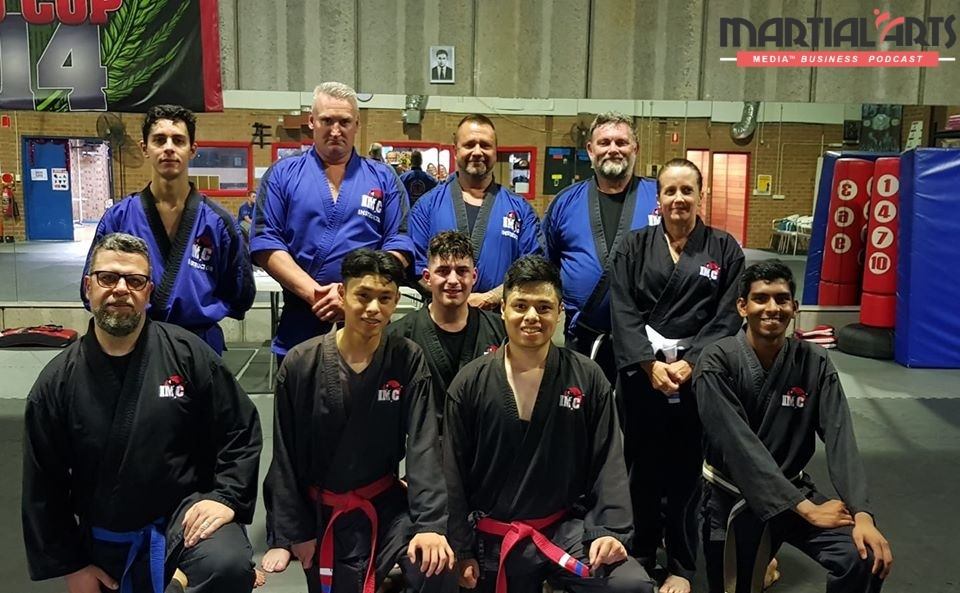
So I'm always asking myself the right questions, always trying to catch myself say, am I asking myself a question that is going to get me to go forward and have that forward momentum, or am I going to ask the wrong question that’s just going to keep me where I am. And the other thing is, I don't expect it to be easy. I don't expect anyone to do anything for me, I don't expect anything from anyone else and I'm not bitter about it.
It's not like, you know, your whole bunch of bosses, I don't care. It is what it is. There's no self entitlement. No one owes me anything and I'm fine with that.
However, these are lots of good people who all come out of the woodwork and help each other, which is great. And I see that, but knowing that it puts it on you, that emphasis on you and I guess from being a fighter for so long, you know, you can blame the coach or, you know, you have to fly economy halfway across the planet or, you know the airline was shitty or the hotel room was horrible or you only had a week’s notice – you're going to have all these things, and you'll still lose the fight. That's the reason why I lost.
Well, you come up with the solution but you know, I'm just going to be super super careful in that fight, I'm going to make sure that I stretch it out beforehand. Like I'm a big guy, I'm six-three, so flying economy halfway across the world, it's a tough gig. But I want to win the fight. So that's the thing: I desperately want to win that fight. And there's a lot of other people who desperately want to win this fight.
I know that I want to win it. So that way, by asking those questions, you come up with the solution that is what we need to do. And I say this all the time: to me, there's only two types of people. And people hear me say this again and again. But I mean there really are winners and losers. Winners make solutions. Full stop, period. Losers make excuses. There is a subcategory now, I call it smart losers – they make reasons.
GEORGE: Ah!
PETER: The reason this isn't happening yet – I can see your brain thinking now George, you’re thinking, I’ve met lots of people like that. Oh, but George the reason that happened was, I'm a smart guy. Here’s these reasons why I can't succeed. Well, congratulations: you're successful at being a loser. And if you want to do that, that's fine. Some people will fight tooth and nail. No, no, no, there’s a… Okay, stay where you are, it's okay.
But the people who truly want to be successful and get through whatever it is, not just business: life, relationships, money, you know, they're the people who ask themselves the right questions and come up with the solution.
And if the first solution doesn't work, they go for another one and then another one and then another one. And it goes back to what we were saying before: it depends how important that goal is. Or how important it is that you don't stay where you are.
Sometimes – just getting, just out of it, is important to. Say you’re in jail and you want to break out. You’re not thinking, well, I don't want to be here. I want to be in a mansion in the Bahamas. You think, I just want out. We’ll reassess everything and as soon as they get out of these bars go away and I'm out of jail. It's a terrible analogy, sorry, but I think people will get what I'm saying, right?
GEORGE: Totally. I mean, and I really love that because I discovered this really, I mean really that it hit home for me was, a couple of years ago, I think it was my wife that asked me a question that I just wasn't contemplating. I was actually working part time, trying to build up this business.
You know, I've never shared this story and it's a crazy thing. Because I was really embarrassed to actually talk about it, because it was embarrassing, right? I've been this sort of a, you know, business mind and computer programming guide for so long and then you know, I moved to Australia and I was working in the sales job, it was going well.
And then I wanted to start this online business. And I wanted to do this online business but it was just… This pivot in school owner’s experience, right: you’ve got full-time income, you're trying to be a business owner – something's gotta give. Something’s got to tip and I couldn't make this tip.
My next-door neighbor walks up to me and says, we just bought a lot of delivery business. I said, okay and so they asked me to be the driver and I was like, no way in hell will I do that. I won't do that and it's ego talking. Look, just from context: there's nothing against, honestly doing that proper job. It was just… I just didn't feel that was where I should spend my time.
PETER: Absolutely
GEORGE: And so I got a few bills and it didn't look good and uh…
Peter: The delivery driver looked good.
GEORGE: And I think okay, so I just got to give up to sleep two nights a week and I'm going to get about an extra four-five hundred dollars a week and I'm not… That's really going to take the edge off. That's going to make me build this business. So I reluctantly said yes.
And so I started doing this before long but then I got accustomed to it, no sleeping and operating that way. Before I knew it, bills got really bad and then I was working five nights a week, my life was deliver milk in buildings from 10pm to 6am, sleep for four hours, train martial arts, have a nap, get to work on the business, take my son to martial arts, have a nap – and this was my life for three-four years.
Anyway, long story short, but I was really stuck. I couldn't move forward because of my mental capacity… I was a walking zombie. And it was until my wife just started throwing a question at me about what if… What if I did it this way, what if I did it that way. And I was so stuck in this rut for so many years and I went, huh.
And that wasn't the first time she threw a question at me that definitely made me think. And it's since then that I really just take a step back. Because sometimes, especially now, you know: schools are closed, it's terrible. But what if it's not?
Okay, my business is closed. Okay, so where’s the opportunity here? Well, I could do something online. Okay, I don't want to do something online. Well, okay, I've got a choice. I could either be out of business, or an online business. Okay, so I'll be in an online business. So what's the opportunity here? Well, I can add this extra component to my school, which I never had time to do. I don't have time because I'm…
PETER: George, can you stop just there for one second. Exactly what you did is what needed to be done. You know, you weren't really thinking about becoming, you know, your dream job wasn't becoming a milk delivery guy. But the pain of staying where you were was too much, so you had to do something. And something came up, but then you should thank your wife. She started asking the right questions.
Also thank yourself for asking yourself what can I do? Well hold on. And the reason, I'm going to guess, you came up with the right answer because the pain of not sleeping…
GEORGE: It sucks.
Peter: Yeah, it sucks. It's so annoying, you know, and it drove you to what you're doing now. So that's awesome. You know, you've got that and it's funny, you'll see very quickly which category people sit in when you just ask them a few questions. As you were, keep going.
GEORGE: No, perfect and I mean it's just to add context to this conversation, right? Because I think right now people are really being put to the test. And I kind of look at this industry, you know, what drew me to this industry was the first things I saw on the wall. Respect, integrity, confidence, resilience, all these things.
And if there was ever a test to display what you've been teaching, this is it. Like, how are you showing up to this. You can either bury your head in the sand – then what have you been teaching? Or you can say, well hey.
PETER: Exactly.
GEORGE: This is the battle. This is the battle we’ve been training for. Are you with me or are you leaving?
PETER: Yeah, no, this is exactly true. You know, and it's really easy for me to achieve big goals. Because I find this is a big goal. Get to the end of this and open my doors and have everything go back on as per norm.
But to begin with, I'm like, I have no idea. I don't know what to do. And that's exactly like a white belt. But now we're all white belts, we’re all sitting in that same place, all going, what do we do? And what happens? You either get a tip or you go for that first grading and you're scared and you're annoyed and it's frustrating.
Or, you know, you don't know what to do because you didnt train hard enough. Or you get there and you do really well. And what happens, when do people drop out? They hit the first belt and they quit. So there's going to be a whole lot of quitters at that first grading. They're going to come into that first challenge, whatever that may be and they’re going to quit. We know that because we see it.
Training is like the world you know into… it gives me all the answers I need. And then it's going to be a few more gradings and some will do really well. In the beginning, there's going to be some who are going to be really talented. We're going to go, ah, these people are awesome! Look at their online business.
But some of them will quit and some will keep going. And some will be successful and some will be really successful and some will fade away. Some will get a black belt and realize that’s just the beginning. Others will give up before their first grading and lots of them will come up with excuses and reasons. And that's all it is.
I mean, you know, people are looking for a big, complicated answer – it's not. The amount of effort that's required to get to where we're going, especially in these uncertain times. We’re not even sure where it is we're going, specifically. That effort might be a lot more, just like you and your milk job. You know, 10 o'clock to 7 o'clock in the morning or something, ridiculous.
GEORGE: Yeah, it was crazy, yeah.
PETER: Get the cows to give milk at milk at different times. But the pain of going home to your family and saying, sorry, we're just having lunch and dinner from now on. And we're moving into my mate's caravan. This is painful, I'd hate to have to tell that to my wife. I love my house, I love my home, I love my family.
And that's, again, going back to those, you know, those principles. And principles of martial artists, you know is, stick to the program. You know, that intestinal fortitude, that inner strength. You know, should I go next door and rip off the guys lawnmower and then I can sell it. That goes against my principles.
To some people that's fun. I know that, cuz I'm home all the time. I know when they're home and when they're not home, everybody goes steal the whipper snipper as well and I'll be like, if that's where your principles lay.
People will do that, but that's, you know, it's not me, it's not you. It's not martial artists as a whole mostly. But we all have to keep on continuing to go back on what we know already as a martial artist and stick to the program. And realize that we're probably going to fail a few times.
You're going to stumble a few times, there's a few times we're going to walk out of the dojo, we’ll walk out of a meeting going I just got my ass kicked. I was talking to, before we jumped online, that I just got a letter from my accountant saying, Pete, looks like you've missed one of those bass payments.
It's a body punch. Zero income – hey, the tax department wants a really big check from you Pete. I have to pay for it or you know, lie down and go ahh. But I'll come up with a solution, because the idea of doing anything else, not because I'm particularly…
What's the word, particularly fond of the Australian taxation department. It's, I'll pay the bill and I'll get it done, because I'm fond of where I'm at. And the other option is certainly not going to happen. And once you have that mindset that, I'll either win or I'll be dead, you'd be surprised what you can achieve.
Most people don't want to have that commitment to anything, right? Most people are like, huh pretty good. You know, if I get this job, you know I put in the effort there and I'll do this and it'll be alright. They’re scared to take that risk – I understand that. Don’t want to mess up what they already have. Why do you think so many great fighters come from shitty areas and shitty homes and you know, not even, street kids.
It's because you’ve got nothing to lose. No one’s saying to you, George if you fuck this up mate, you're going to end up with nothing, you know.
So, well Pete I’ve got nothing already so, sky's the limit. But when you’ve already got a whole bunch of nice things, it can be harder. You know, you can be paralyzed with fear. Say, I don't wanna lose any of this. If I bet too much, I could lose. I don't want to lose, so I'm just going to keep on that small track. But now, we're all being forced to bet everything. You’re either all in or you’re all out.
GEORGE: So on that Peter, where does your drive come from? What made you a successful fighter? What was that thing that lit a fire under you that you really wanted that success. And still want a continuous, moving forward in business in life.
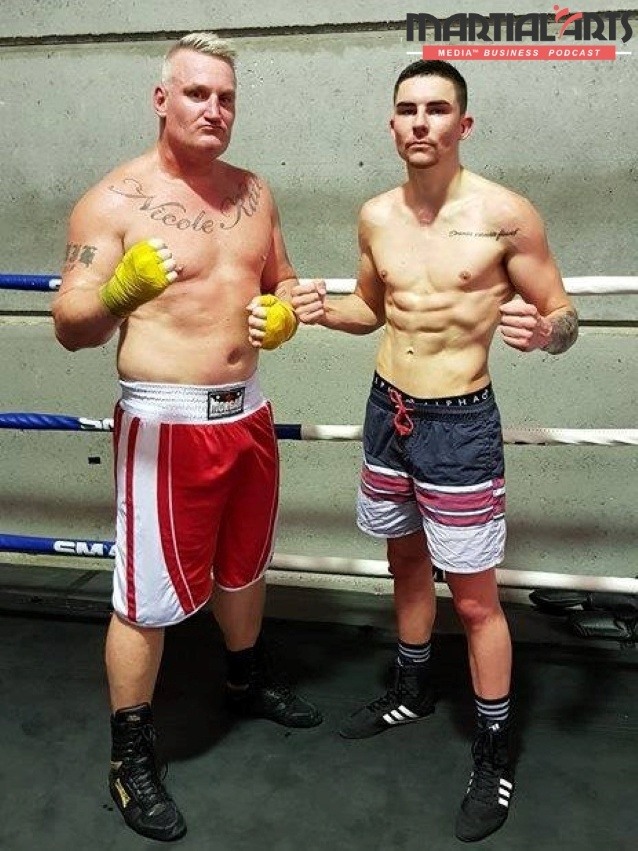 PETER: You know what, when I was a kid, I moved around a lot. I went to lots of different schools and I was a nobody to everybody. And I didn't like that. I wasn't good at making friends, because I was always the new kid. And I'm talkative and I get lots of energy and I get really excited.
PETER: You know what, when I was a kid, I moved around a lot. I went to lots of different schools and I was a nobody to everybody. And I didn't like that. I wasn't good at making friends, because I was always the new kid. And I'm talkative and I get lots of energy and I get really excited.
So when you’re the new kid who's really talkative and excited about things, you think, this guy's clearly crazy. You know, every three to four months since I was about 12 or 13, I had to move. I lived in the youth refugees. And then I used to lie all the time. Yeah I've got this and I've got that, my dad's this, my mom's that.
Clearly my mom wasn't this and my dad wasn't that and I didn't have anything. Didn't have friends because that would mean you have to be somewhere for a long period of time. I didn't have family, certainly didn't have any money and I had no education at all. And for a while when I was young it was like, well you know, you just carry on.
Then after a while, you get sick of it. Now unfortunately, most kids who grew up like refugees and street kids and you know, what they call harmless refugees and stuff, even in awesome places like Australia, they end up alcoholics, drug addicts, criminals and their lives are horrible. And that was all around me and I certainly didn't want that.
I remember one day, this is a story that really shows where I just said, this has got to change. This particular time, I was living in a big stormwater train, a place called Eastful. A couple of suburbs outside of Sydney. The reason I was living there and not in the city where most street kids live or in the train yards and stuff like that is because I was scared. Because when I was a kid, a really young kid, I actually came from a nice area.
And we won't go into the back story of how everything went horribly wrong, so I wasn't you know, everyone I ever met who was a street kid, you know, they’re all, my dad's are criminal and my mom is this. And you know everyone could fight me, everyone was tough and I wasn't that guy. And it was my little sister's birthday, so I said, you know, what I'm going to do is a big graffiti piece.
Now, I was too scared to do it on a train or on a public walk, but inside this big stormwater train, if I could do it there, yeah, probably not going to get into a lot of trouble. To show you the type of kid I was, I saved up and bought the paint. No respect, I know.
Anyway, so you know, I sprayed on the wall and it looked absolutely terrible. This is ridiculous and it was possibly one of the lowest points of my life. It's basically at that time. No friends, no family, I wasn't going to school, no money. I said, you know what, I am going to become a criminal.
Now, down the road there was a big sports store with a big plate glass window. And I went, what if I go up there, because I've always been a pretty big kid, I'll pick up this big terracotta pot and I'll throw it through the window, take all the sports athletic gear and I'll walk around, I'll look real cool.
So I went over there and stashed my stuff in my stormwater train, just outside there were a bunch of trees. So I put it under there, under bushes. And it was, you know, two o'clock in the morning, no one around. And I pick up this, you know, this big terracotta pot and I throw it in this place plate glass window and it bounces off, shatters into a million pieces, you know, and then all the alarms and bells and whistles, everything just went off.
And I was like, what? And I run off and I run back and I jump over the fence and then go down into where the big stormwater train is. And I remember sitting there, I was going, this is ridiculous. I can't even be a criminal.
Now, what does everyone say, they say, you keep going like that George, you're going to end up a crim. I couldn't, I didn't even have the ability to end up as a criminal. I was shattered, it was like I am good at absolutely nothing and no one gives a shit.
And I remember sitting there just contemplating my life and how crap it was. And I said, it's got to be something. Something's got to be there. And I said to the universe, I said, make me good at something. Anything, I'll take anything. At this point, I'll take anything.
Now, if you're a religious person then you ask God or whatever and at that point then, absolutely nothing happened. I didn't have a moment of clarity, I didn't have some deep insight – absolutely nothing happened. Nothing happened at all whatsoever for another four years. But what did happen was, I started searching. I’ve got to be good at something, I’ve got to be good at something.
And for me, I could hear it ticking in my head. You're going to run out of time Pete, you’re going to run out of time. You're going to end up like everybody else. You'd better hurry up, you better find your thing.
You know, I didn't have much self-confidence, you know, for a lot of reasons. Mostly because I kept failing everything. Because I’d go to school for a couple of months and then the next school would have the same thing or then they'd have something completely different.
And then after a while, you just give up. And on top of that, I’ve got add, attention deficit disorder which means concentrating on anything for more than a split second it's normally kind of tough.

But what I do have and I had it in a bucket list, I had a desire. I said, wherever I am now is so shit. I didn't have any guidance, no one’s saying what you should do Pete, you should do this and see that person, or be that person. You could talk to George – none of that.
You know, I'd like to say that, you know, there was some great insight from other people along the road, but there wasn't. It was just that same shitty feeling of feeling like I was invisible. I’d go to school and it didn’t matter if I’d turn up or didn't turn up, you know. Whether I was lalateid or wasn't late – it didn't matter.
And I wanted to matter. I wanted to be famous, I said, I want to be famous. I want to have something, anything. And that desire just kept burning into me.
And then the day happened. I had a fight with this guy, I was in a refuge at this time. And I'd made my lunch, it was the last of my food and I was walking back into the common room to watch the tv. I wasn’t allowed to watch the tv with my food, you know, there's no food in there.
And this guy Brad said, as I was holding my plate of four sandwiches, he goes, you're not allowed to eat in the common room. I went boom! And all my food went everywhere and I just lost my mind. Yeah, let's just say Brad and I didn't stay friends for much longer and I got kicked out.
I was so angry too, because I was like, it wasn't me, I didn't do it, it was this guy. And what was I doing? I was blaming. I was so mad and I didn't want to move, because I was living in this great house in North Sydney in Sydney, which is a great affluent area and thought it made people think that I had money.
So it was really cool. They said no, you’ve got to go. And they took me and they said, we've got this other place, because I was about 17. They said, you can go there and it's kind of, you know, it's not a halfway house. It's like moving from being what they call young homeless to being young and unemployed. They really kind of set you up there.
But anyway, but every day, they moved me there and it was great, this was cool. But I used to go down to the bottle-o. because you know, me and my friends would go get drunk and hang out. I still smoked cigarettes at that stage when I was a kid. I used to go past this karate dojo and I went, that's what I'll do. I'll do that.
I think I wanted to do taekwondo, because I thought the flag was better. Japanese flag, just the red dot. The Korean flag with cool little words and the yin yang, that was a bit cool. I said, this'll do.
I walked into the dojo and there's a guy behind the counter called Johnny and I walk in, and I said, hey what do I need to do to be a karate champ? And he told me after, yes Pete, I just rolled my eyes when I went back and said, man there’s this crazy kid out here, you know, who’s so big. There’s this crazy big kid out here, he wants to become a karate champ, you know. They were kind of laughing at me. Just turn up at 6 o'clock.
So I turned up at 6 o'clock and something happened. I started doing those punches and I thought this is it, this is pretty simple. All I've got to do is work harder than everyone else. And I got it. And I thought, ok all I need to do is turn up and at that time it started, I had a job so I had a bit of money and I had a stable place, because I was just about to turn 18.
And once you turn 18, you know, you can stay in one place for a longer time, unless you're, you know, there's a few other rules and regulations and stuff. That your parents clear the papers and let you stay somewhere, but mine didn't. And that was it.
I was 17 and I thought, if I don't do this now I'm going to miss the boat. I started karate and punched and kicked and screamed all the way to the K1 Grand Prix. And it was a desire to be better than what I was. And I would do anything, I’d go on every tournament, I would take anything.
I used to go through the magazines, look for tournaments going to them. But it was that desire to be better than what I was. I find out now, she's my lovely wife, that what, you know, being famous is great, but having a family is a million times better.
But it's exciting, because that same way, that drive and that, you know, that perseverance that was needed to get to where I was, happened for two reasons. One is, I really didn't want to be there, and two, I really wanted to get somewhere else. Turns out, the final goal was a little different, which was fun. But it set me up. And it's awesome, it's a wonderful feeling to know that I have that part of my life figured out completely, how to be a success in whatever it is I choose to do. And it works for everyone if they want to be honest to themselves. Some people don't.
GEORGE: First up, I mean, I love your story. That's inspiring stuff. How would you, what would you say to martial artists in general now? You've got, I mean, you've got really extensive knowledge experience in, you know, in the fighting arena. And I know a lot of martial artists do, but maybe some people have forgotten where they were at. Maybe they've gotten a bit complacent: what advice would you give to martial artists, martial arts school owners now in this climate and navigating through the obstacles?
PETER: Super simple: treat yourself as a white belt. You’ve just walked I,n first day on a mamat. What was that thing that said, this is for me? Learn, learn, learn, learn, learn and know that you're going to make mistakes. All the things that we tell a white belt, all the people who walk in that have never done anything before, you know. That open-mindedness that you tell them to have, we have to have now.
Learn and beat despair. Don't be afraid to ask questions. It's okay, we're all in the same boat, ask questions. Hey, how did you do this, how did you do that? Can you help me with this? I'll help you, if I find out, I'll help you.
So, you know, ask yourself the right questions, you’ll get the right answer. And nothing, nothing, nothing, nothing beats hard work. What's hard work? Just do it.
Write down a list of things you could possibly do, a list of things, a list of people you could talk to. But things that are going to make things better. Ask yourself the right questions. That's it, hard work, discipline, sticking to the program.
Although the final goal might change a little bit, you've got to start with something. You know, I want to be here at the end of this coronavirus. I want to have a dojo and I want to be able to open the doors the day that we're allowed to. That's my goal. And I'd like to have a little bit of money.
GEORGE: Love it.
PETER: If we get there and it says, I'm going to have a lot of money and a great online business and everyone rushes back into my dojo because they’re super pumped to come back, even better. Preparation meets opportunity. That's good luck.
The lack of preparation, well, the opportunity comes, you’ll get popped. The fight, it's, you know, straight away. In business it can be, you know, a three month lag. So work hard now and in three months, you have a better chance of being there. I can’t guarantee it, no one guarantees your business is going to be here, nor mine or anyone else's. But you're going to give yourself a better chance if you train, or work as hard as you can.
GEORGE: Awesome. Hey, Peter thanks so much for taking the time to hang out. Look forward to having a few more cool conversations with you. If anybody wants to reach out to you and connect with you, what's the best way for them to do that?
PETER: Just jump on my Facebook, Peter Graham. There's a picture of me. By all means, shoot me through some messages and I'll try to get back to as many people as possible. Thanks George, I really appreciate talking to you. And thank you for all the help you've given me as well, you're doing a great job.
GEORGE: You're welcome. Perfect, awesome.
Awesome. Thanks for listening. If you want to connect with other top and smart martial arts school owners, and have a chat about marketing, lead generation, what's working now, or just have a gentle rant about things that are happening in the industry, then I want to invite you to join our Facebook group.
It's a private Facebook group and in there, I share a lot of extra videos and downloads and worksheets – the things that are working for us when we help school owners grow and share a couple of video interviews and a bunch of cool extra resources.
So it's called the Martial Arts Media Business Community and an easy way to access it is, if you just go to the domain named martialartsmedia.group, so martialaartsmedia.group, g-r-o-u-p, there's no .Com or anything, martialartsmedia.group. That will take you straight there. Request to join and I will accept your invitation.
Thanks – I'll speak to you on the next episode – cheers!
Here are 3 ways we can help scale your school right now.
1. Join the Martial Arts Media community.
It's our new Facebook community where martial arts school owners get to ask questions about online marketing and get access to training videos that we don't share elsewhere – Click Here.
2. Join the Martial Arts Media Academy and become a Case Study.
I'm working closely with a group of martial arts school owners this month. If you'd like to work with me to help you grow your martial arts school, message me with the word ‘Case Study'.
3. Work with me and my team privately.
If you would like to work with me and my team to scale your school to the next level, then message me with the word ‘private'… tell me a little about your business and what you would like to work on together and I'll get you all the details.
Enjoyed the show? Get more martial arts business tips when you subscribe on iTunes for iPhone or Stitcher Radio for Android devices.
***NEW*** Now available on Spotify!
Podcast Sponsored by Martial Arts Media Partners


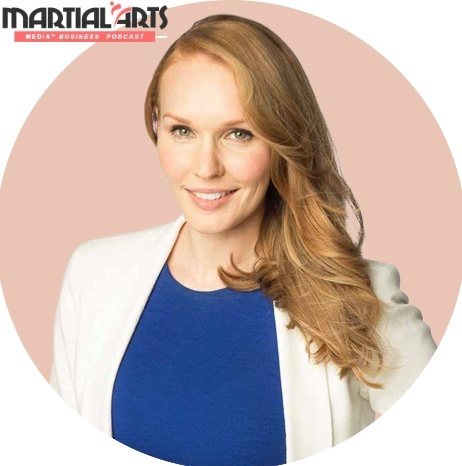 KYLIE:
KYLIE: 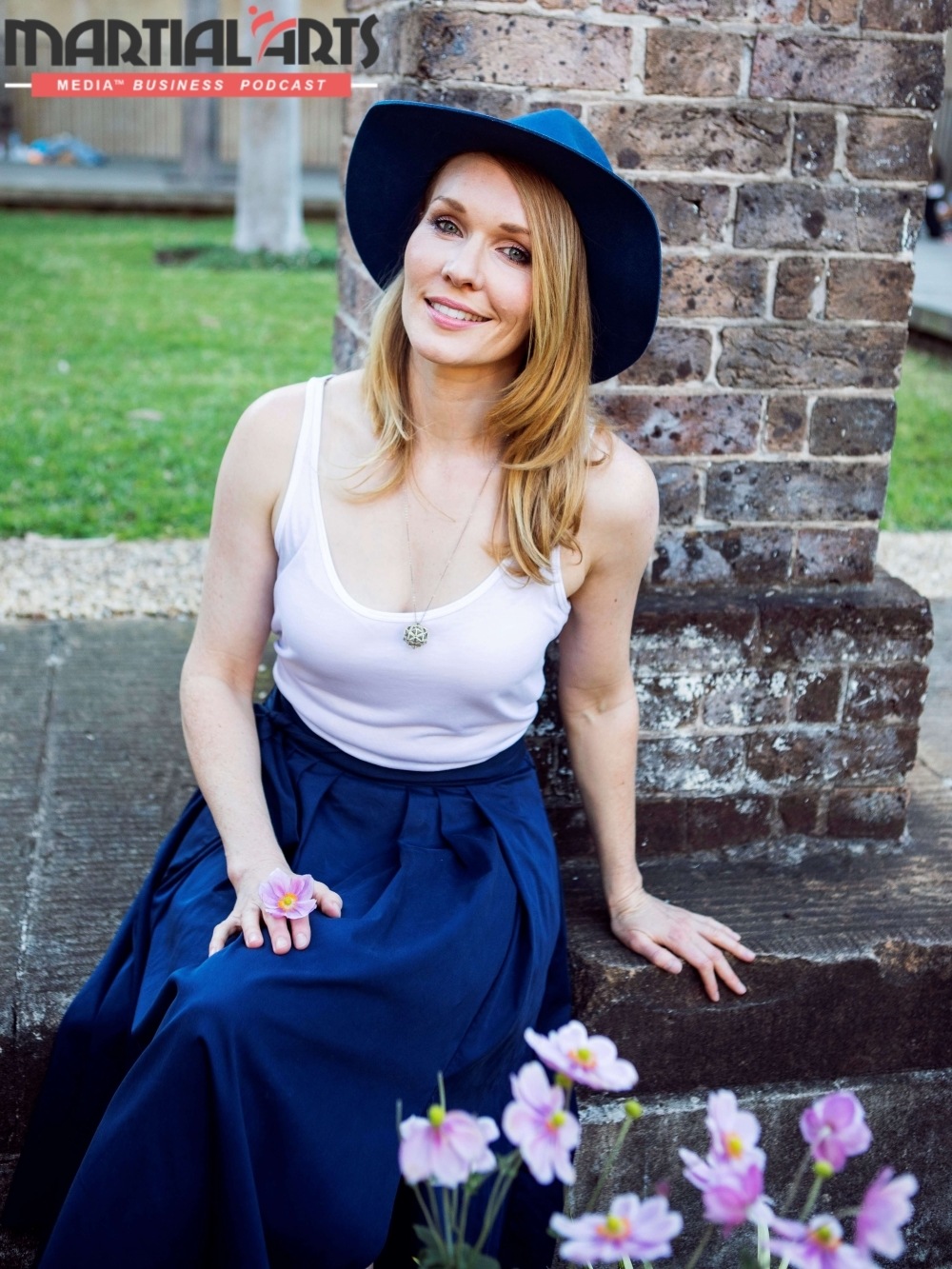 KYLIE:
KYLIE:  For everybody else who really wants to invest in moving forward. In this cocoon time, I've reframed quarantine to cocoon time. And I suggest you do the same, right? I think it's quite useful to go, “Okay, we're all cocooned in our homes now.
For everybody else who really wants to invest in moving forward. In this cocoon time, I've reframed quarantine to cocoon time. And I suggest you do the same, right? I think it's quite useful to go, “Okay, we're all cocooned in our homes now. 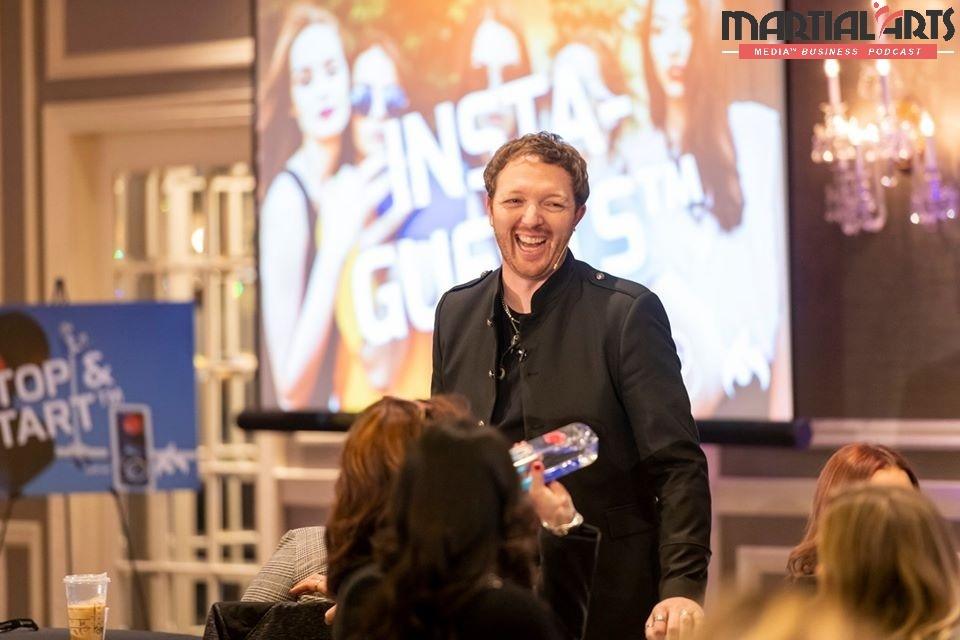


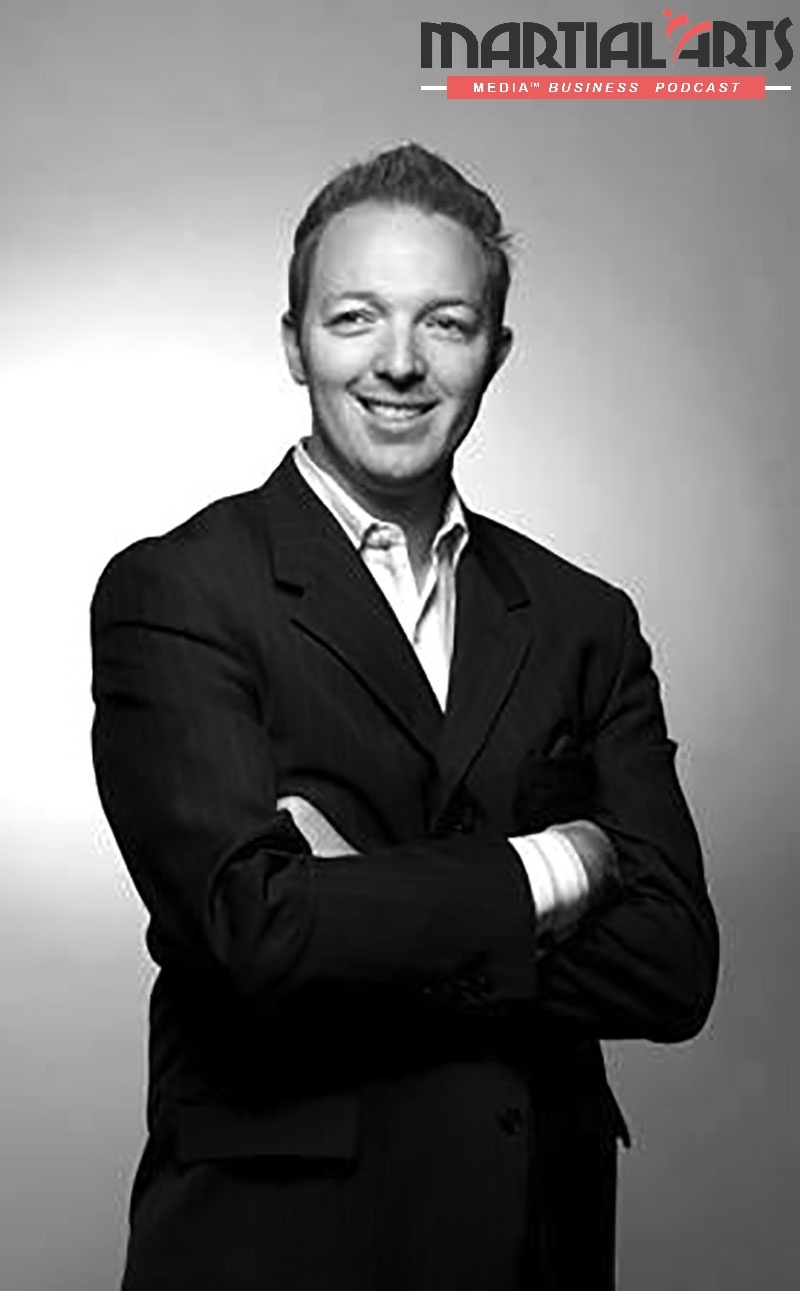 I want you to hear this. People have more money than they've ever had before. I eat out almost every single day and I've eaten out twice in the last week. So do you think I have more money or less money right now? More.
I want you to hear this. People have more money than they've ever had before. I eat out almost every single day and I've eaten out twice in the last week. So do you think I have more money or less money right now? More. 








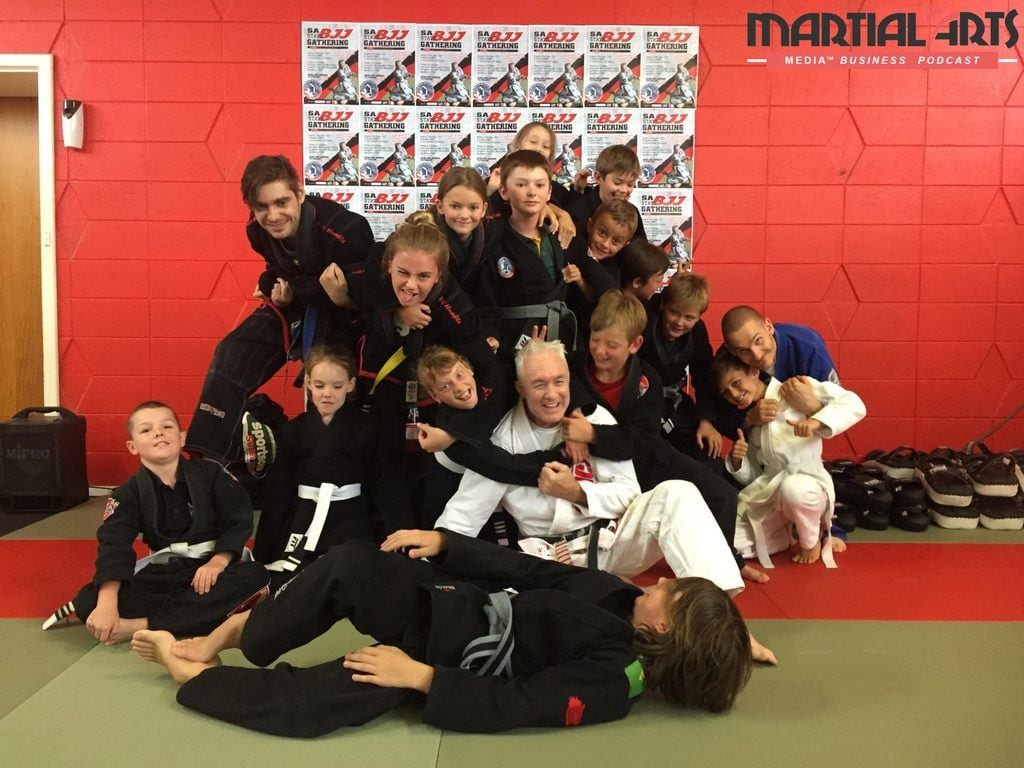
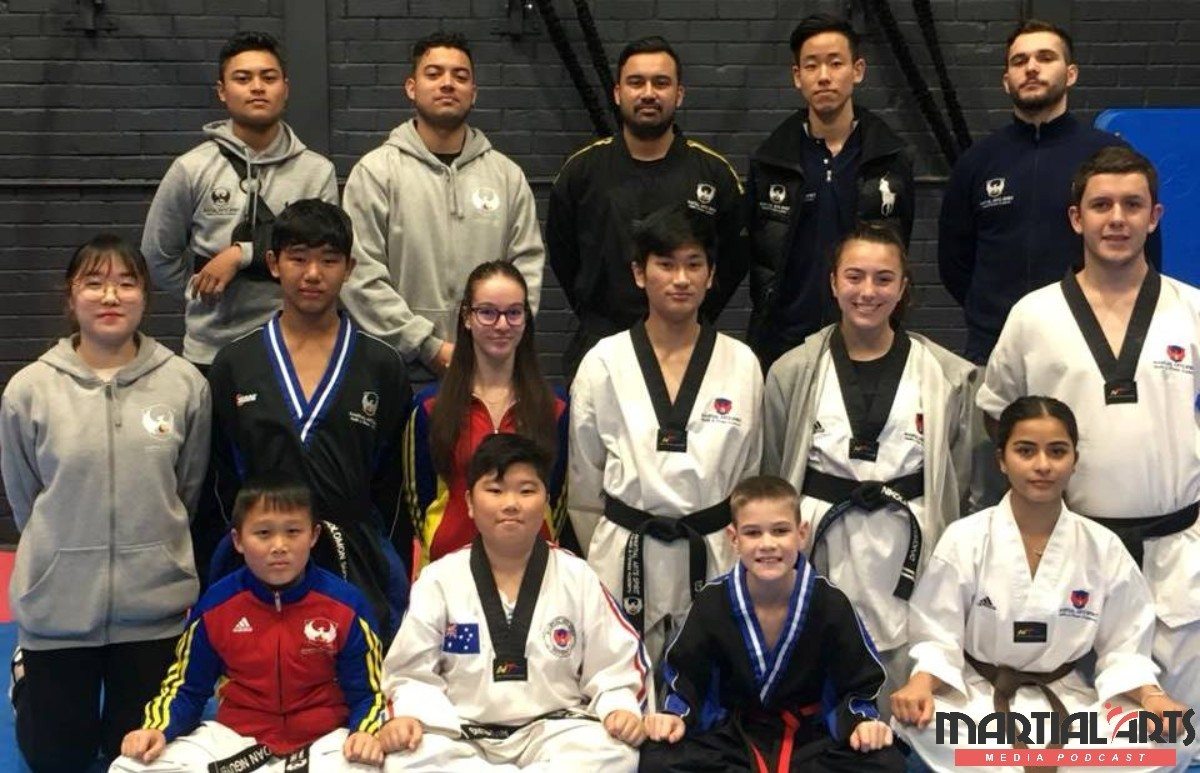
 TERRENCE
TERRENCE

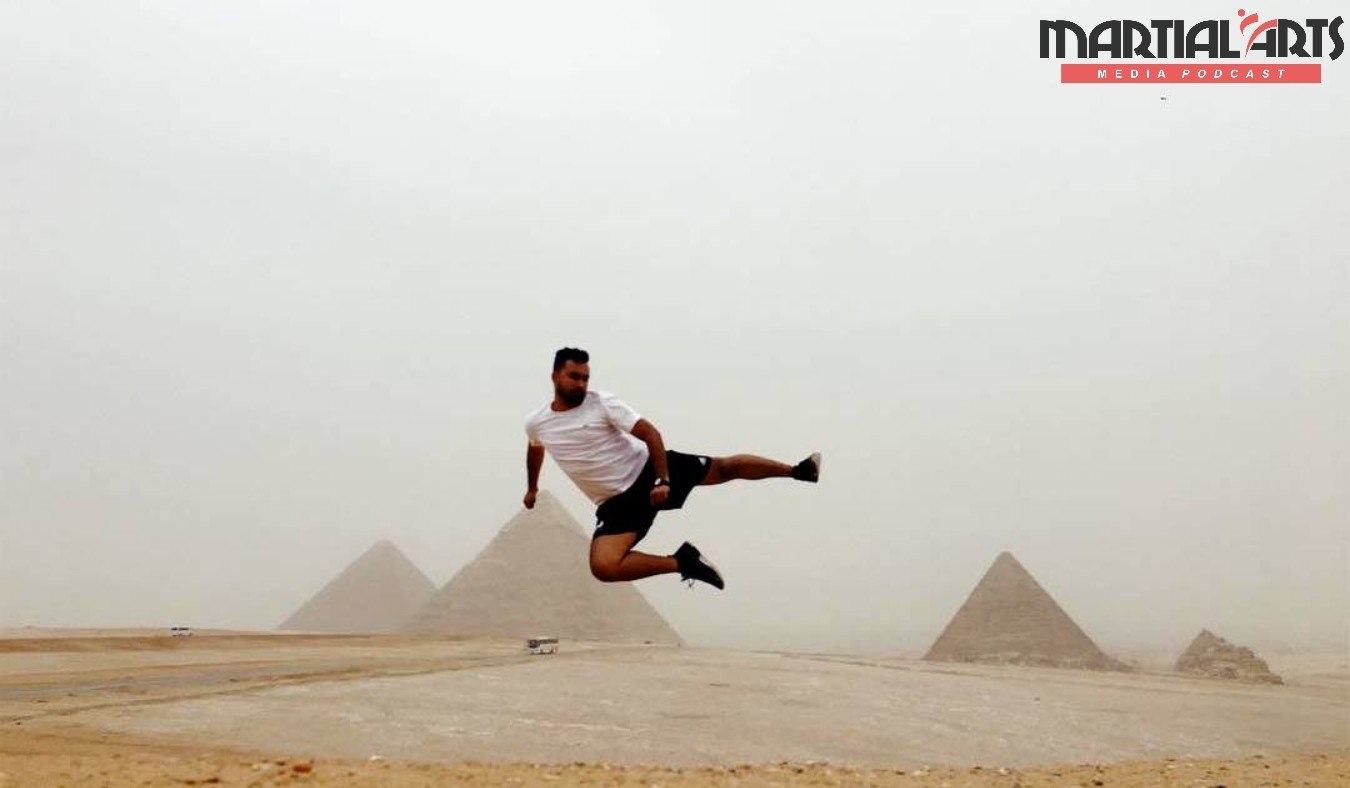

 TERRENCE
TERRENCE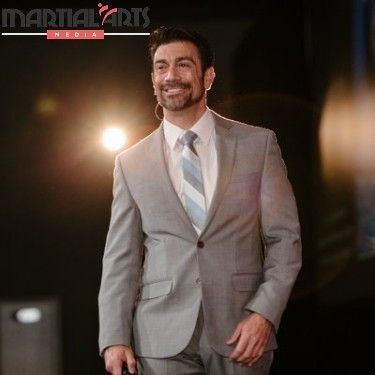
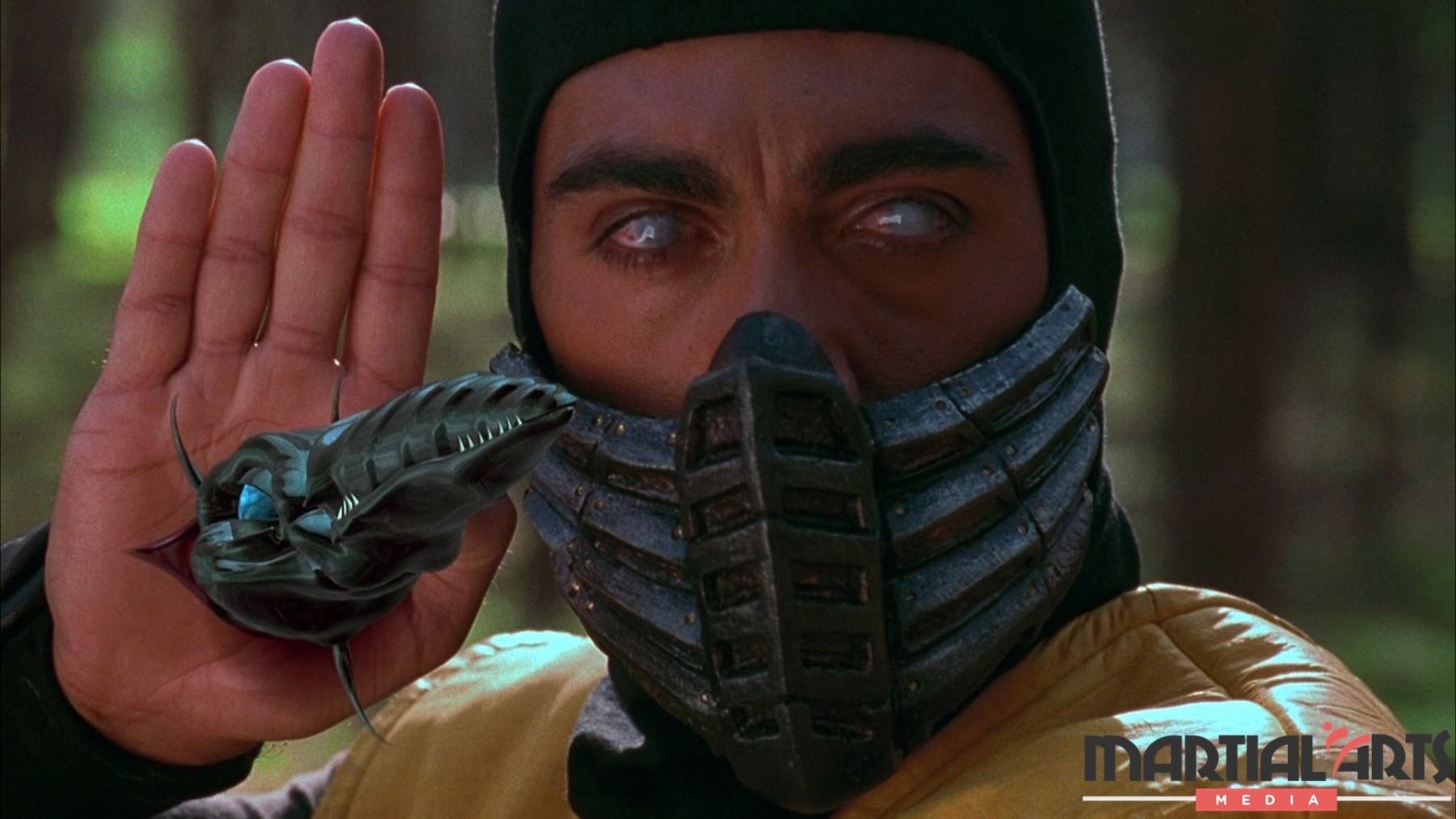

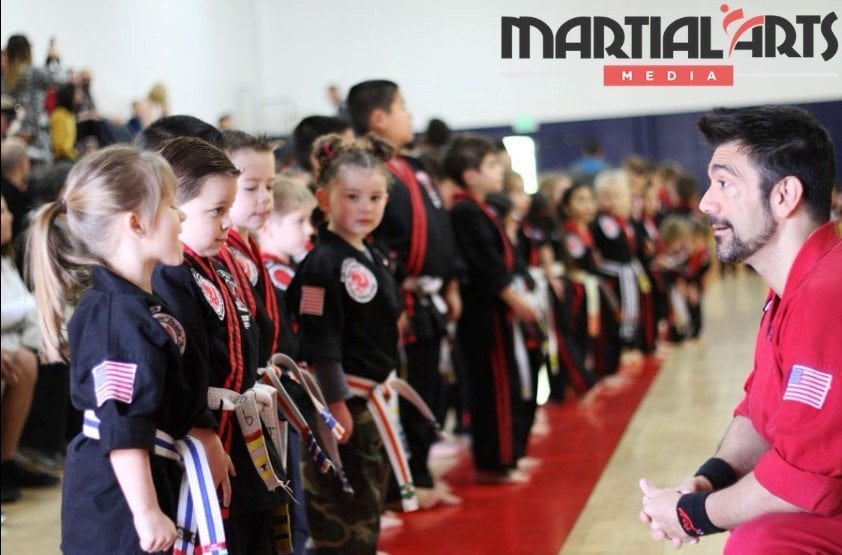

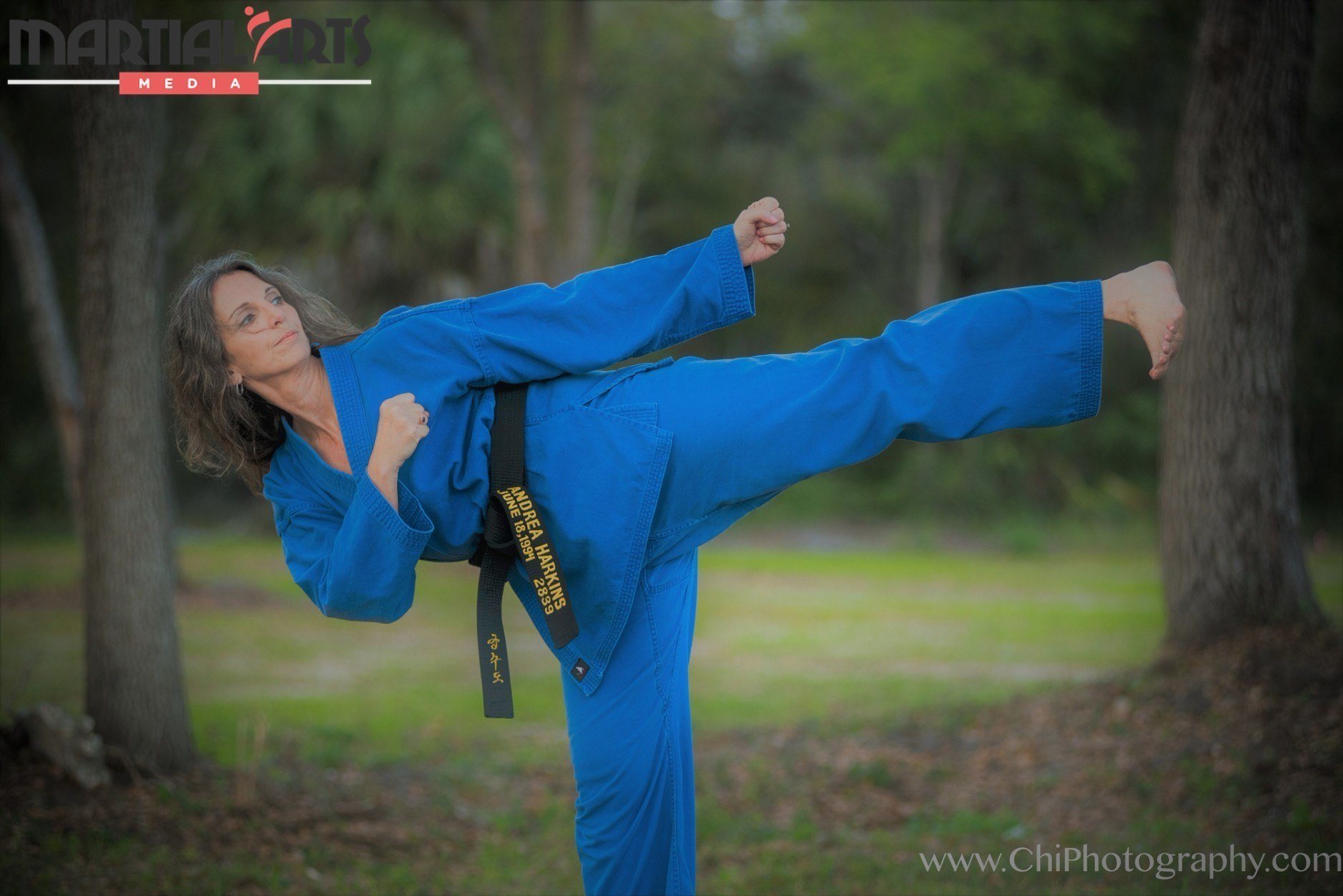

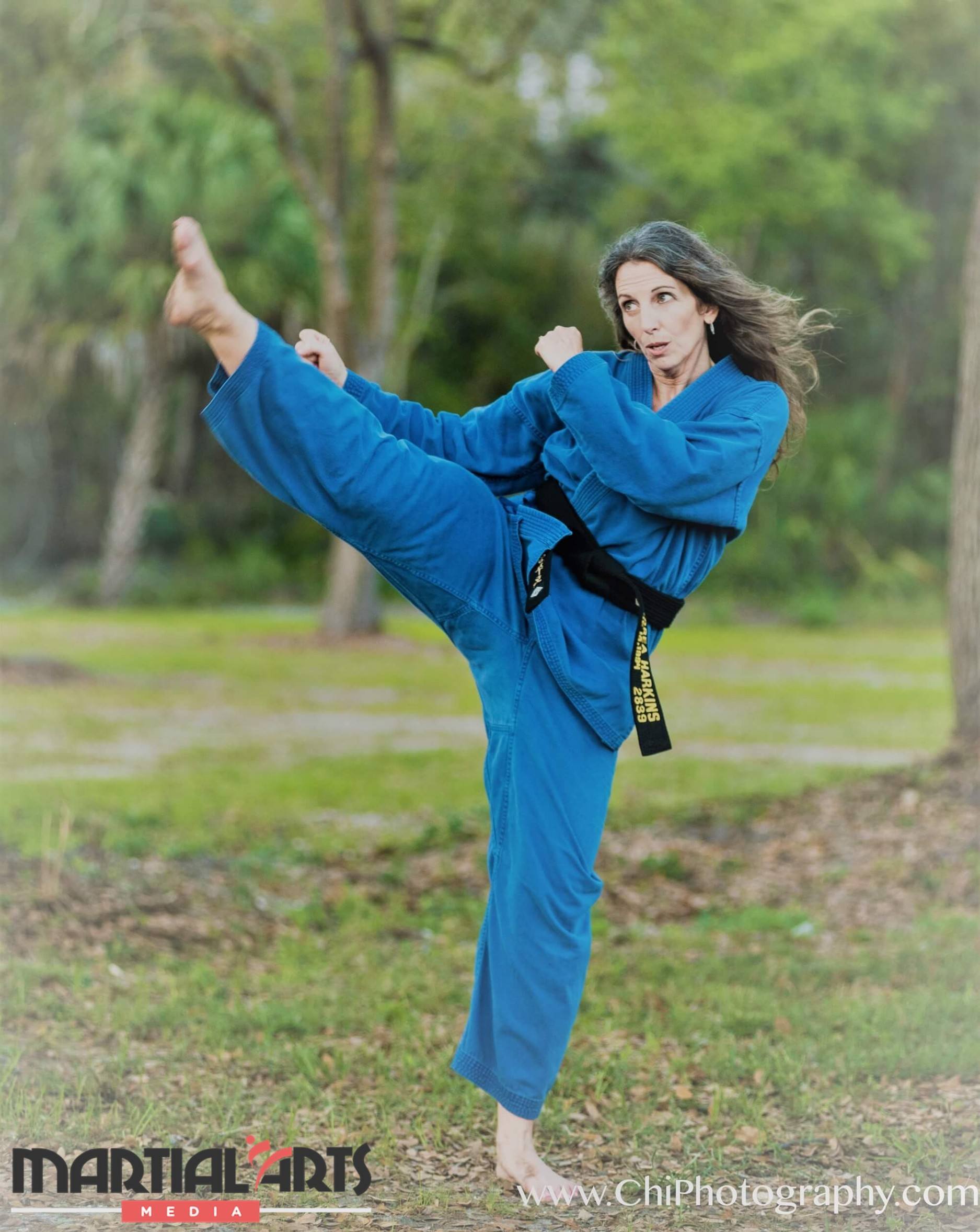 And I certainly have heard different stories from different women, who have had both good and bad experiences with being out there in the martial arts. I think what we have to remember is that men and women are different and this is just my perspective. And this is one of those things that I sometimes get backlashes on saying, but we are different. So we practice differently, we have a different mindset. We may learn the same things from the same instructors, but we see things a little differently. We’re mothers, we’re sisters, and we’re daughters. We have a different mindset overall. Yes, we can take all that away and go into a tournament, or go into a situation, a self-defense situation, really strip ourselves of those things for those moments. But in reality, that's who we are.
And I certainly have heard different stories from different women, who have had both good and bad experiences with being out there in the martial arts. I think what we have to remember is that men and women are different and this is just my perspective. And this is one of those things that I sometimes get backlashes on saying, but we are different. So we practice differently, we have a different mindset. We may learn the same things from the same instructors, but we see things a little differently. We’re mothers, we’re sisters, and we’re daughters. We have a different mindset overall. Yes, we can take all that away and go into a tournament, or go into a situation, a self-defense situation, really strip ourselves of those things for those moments. But in reality, that's who we are.






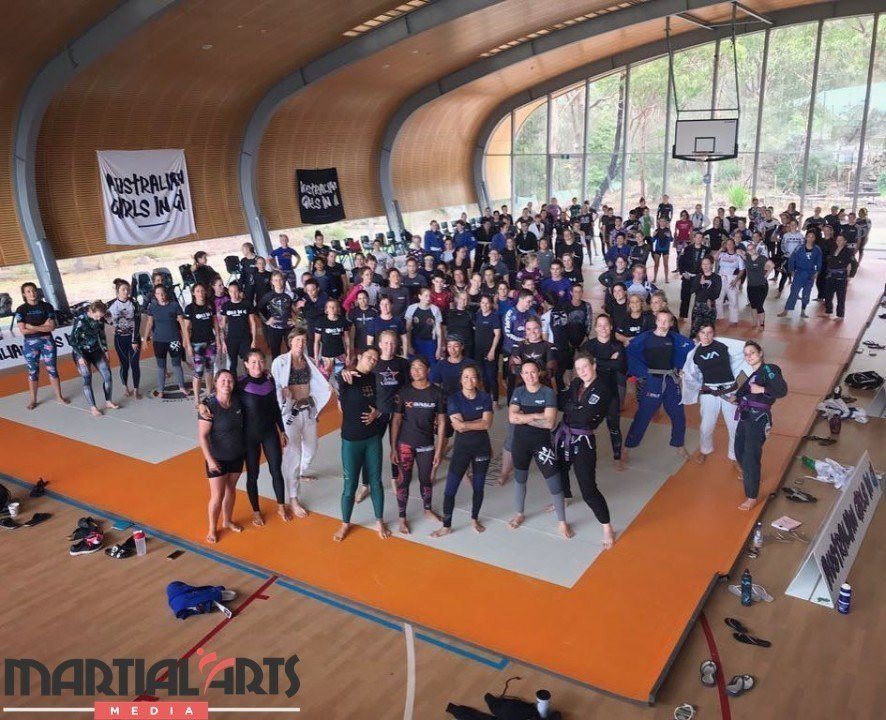
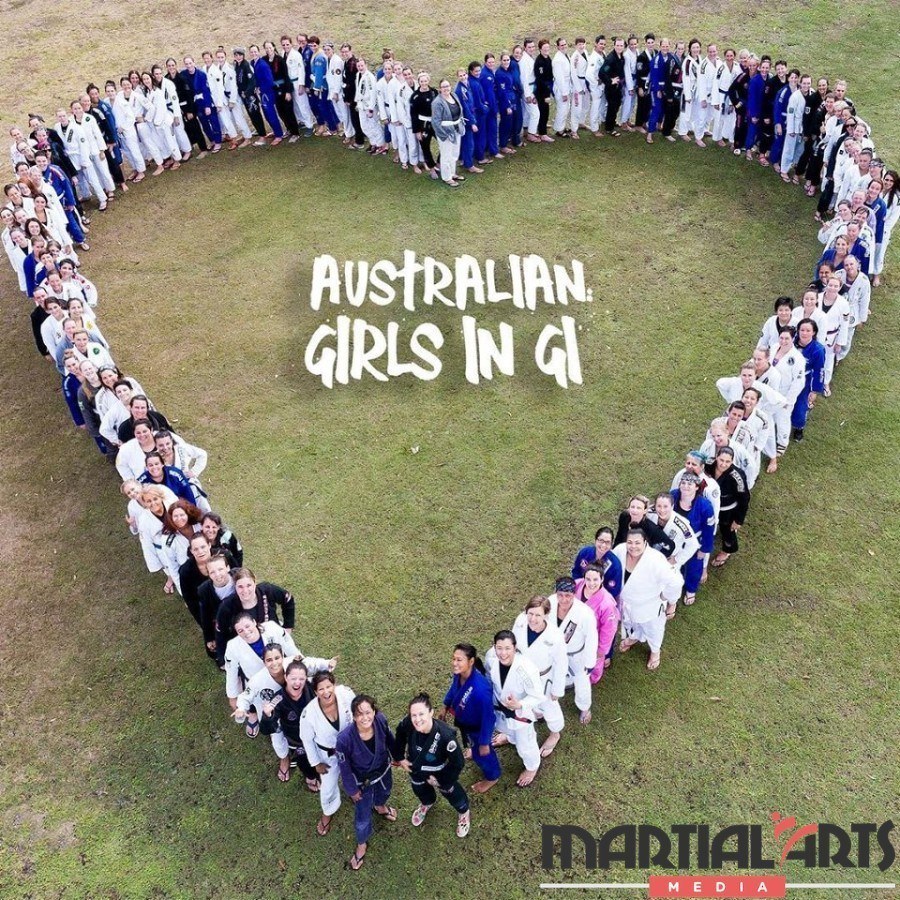
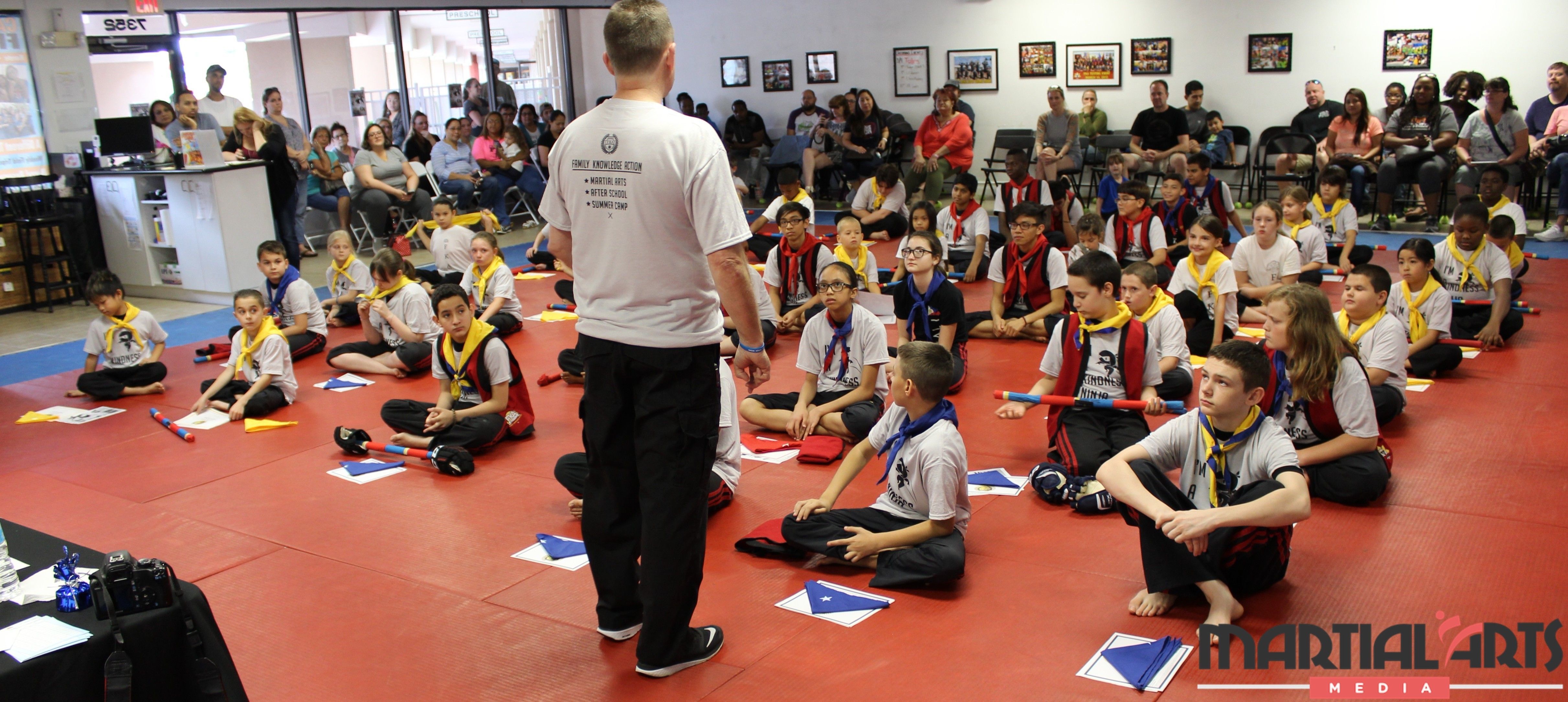
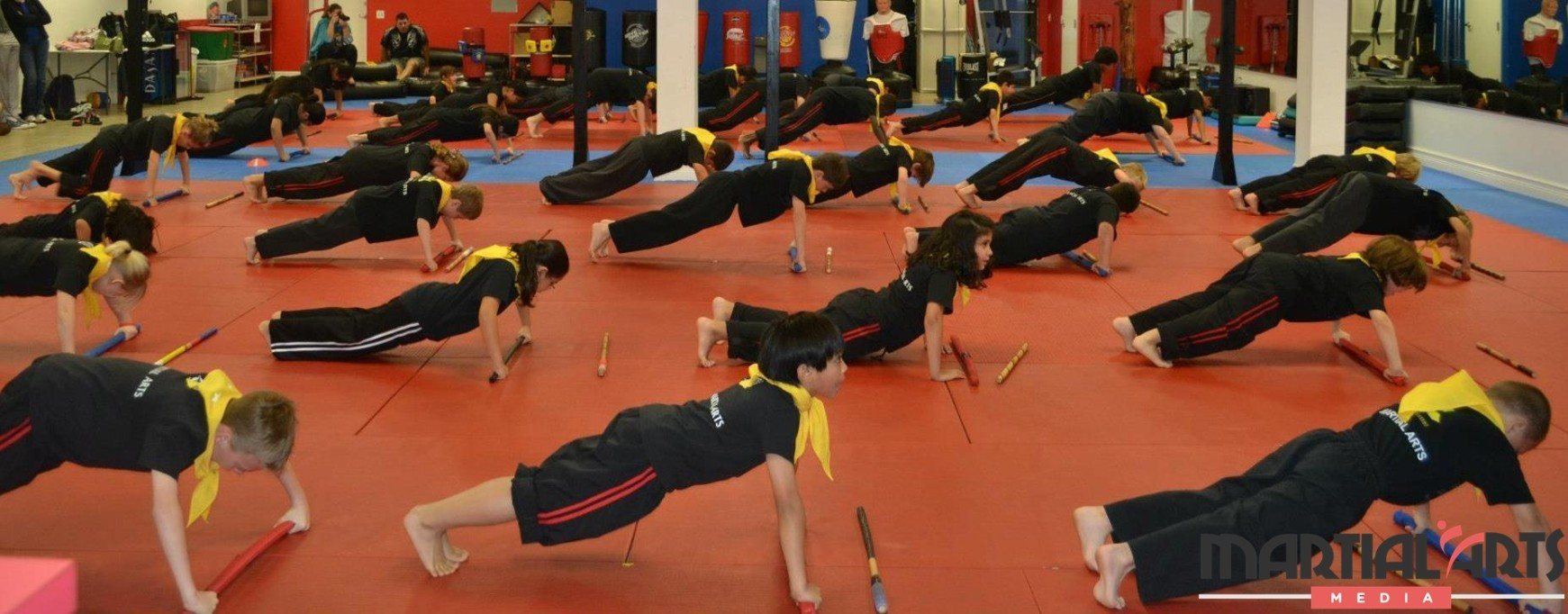


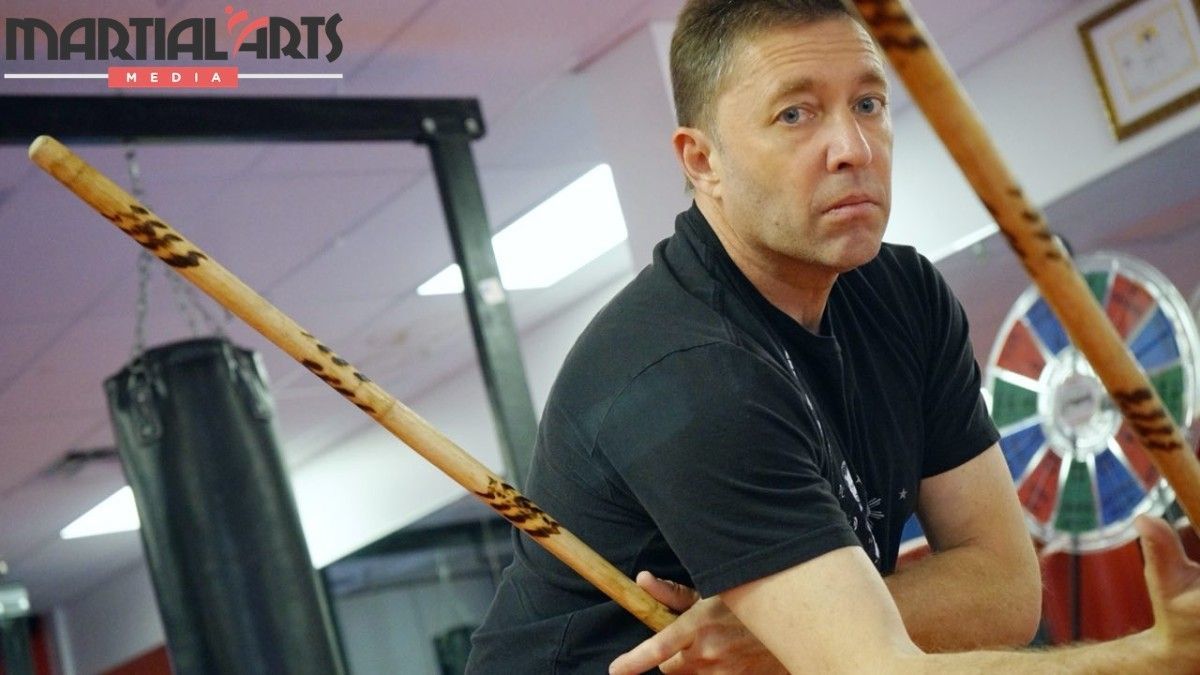



 When I came here, I was passionate about my martial arts. Schooling was my parents’ directive to me more than my own, even though schooling is very important and I did schooling and I recommend everybody does get their schooling and degree, because that's your plan A.
When I came here, I was passionate about my martial arts. Schooling was my parents’ directive to me more than my own, even though schooling is very important and I did schooling and I recommend everybody does get their schooling and degree, because that's your plan A. 
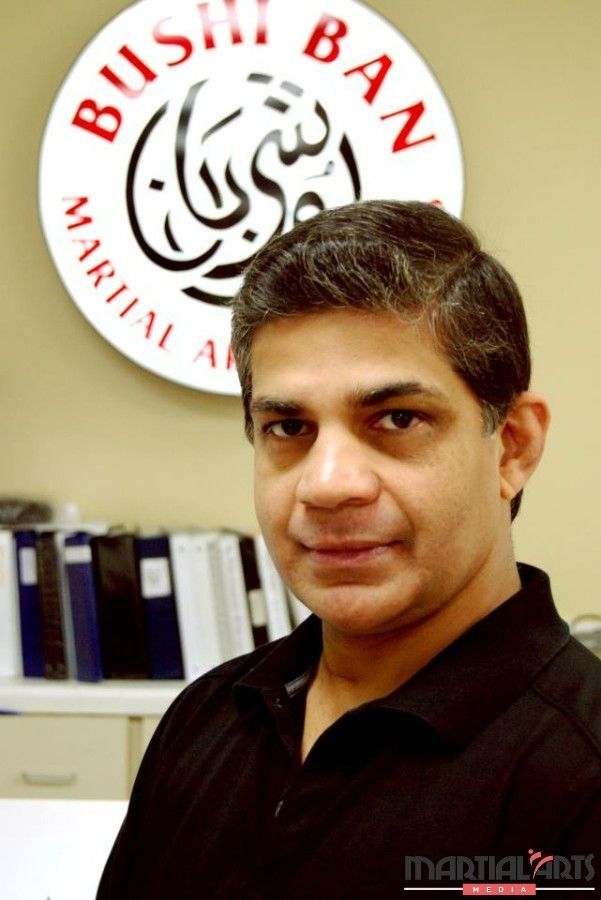 ZULFI:
ZULFI: 


